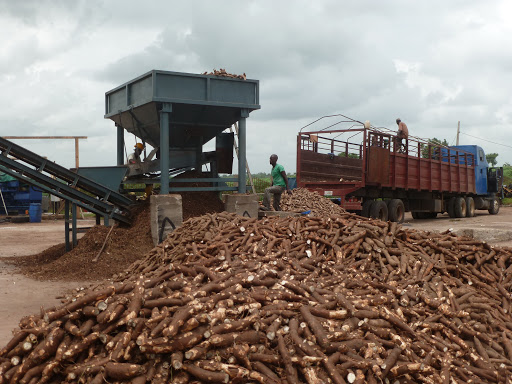Esther Oluwatosin Obafunsho, a young female researcher, recently led the International Institute of Tropical Agriculture’s gender and research team from the Cassava Breeding Unit to conduct fieldwork for a technographic study of cassava users’ activities through case studies in Osun and Imo states of Nigeria. Technography involves the observation, description, and study of technologies and their application within a particular ecological, social, and historical contexts. The gender-focused study was carried out to complement IITA’s efforts at developing modern and improved cassava clones that respond to end-users’ preferences.
Obafunsho, who highlighted the research in a presentation entitled, “Contexts and practices: A gendered technography of farmer-processor cassava activities in Nigeria”, said the research was aimed to identify aspirations, constraints, and opportunities within cassava farming-processing-marketing activities in Osun and Imo states. They carried this out by mapping “context-mechanism-outcome (CMO) configurations” and how they differ for men and women cassava users and determine opportunities and challenges for men and women among the various value chain actors.
The team also mapped out the ways actors are organised, how cooperation and organisation differ by gender and value chain actor, and why they differ. They unveiled hidden mechanisms such as cultural beliefs, community organisation, prestige, and historical knowledge, embedded within the communities. These mechanisms were identified as factors that shape aspirations, opportunities, and challenges for men and women in their daily cassava-related activities. Fieldwork indicated that women would prefer small processing machines that can be individually-owned rather than initiatives focused on larger machines, group work, and processing centres.
In an interview with Favour Eleta, IITA Gender Communication Liaison, Obafunsho shared her experience working with the gender team. She has learned how to navigate an international work environment, as her previous experience was with national research organisations. She also mentioned the importance of validating people’s knowledge in the communities where the research is being carried out through intercultural dialogue. Explaining why she worked with the gender team, Obafunsho said, “My passion is to ensure equity, inclusiveness, and diversity”. Obafunsho is an MSc student from Wageningen University, who has been working as an intern with the IITA Cassava Breeding Unit on qualitative social science research. Obafunsho is supervised by Drs. Harro Maat and Birgit Boogaard; Technology, Knowledge and Innovation Group at Wageningen University, The Netherlands, and Béla Teeken, Associate Social and Gender Scientist in the institute – IITA.



